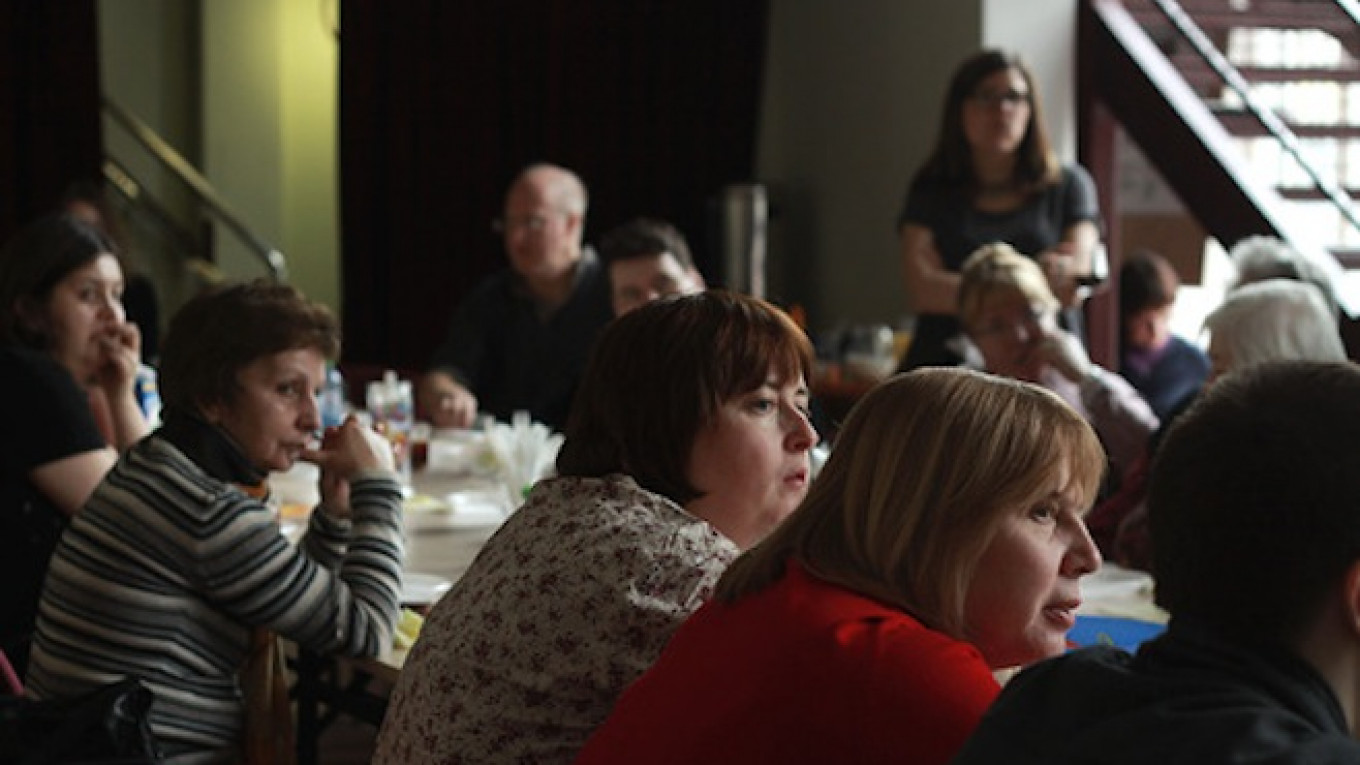Moscow authorities have evicted the Center for the Adaptation and Training of Refugee Children after its managing organization was declared a foreign agent, the center's director Olga Nikolayenko told The Moscow Times Friday.
The center, which will celebrate its twentieth anniversary this year, is a project of the non-governmental organization Civil Assistance Committee. Since 1998, it has occupied premises at 33 Dolgorukovskaya Ulitsa, where volunteers helped the children of refugees adapt to life in Moscow.
When the center's director arrived at work on Thursday, she found that members of the city's property department were changing the locks and setting an alarm. The center's employees were barred from entering the building.
“Toys, books — everything has been left there,” Nikolayenko said, adding that luckily there were no classes going on there at the time.
The center had been training 70 refugee children from Syria, Afghanistan African nations and Russian children from the republic of Chechnya.
Moscow authorities made the decision to deprive the center of its premises in May 2015, sending notice to the organization about the termination of a lease agreement in three months. No reason was given for such a move.
Head of the Civil Assistance Committee Svetlana Gannushkina and Russian human rights ombudsman Vladimir Lukin attributed the eviction decision to the NGO being added to the list of “foreign agents” — a label attached to NGOs that receive funding from abroad and are engaged in vaguely defined political activity.
Since 2012, when President Vladimir Putin introduced the law on “foreign agents,” many non-commercial organizations have been subject to inspections or pressure from authorities. A number of prominent NGOs have decided to close rather than accept the politically-charged label.
After the lease agreement terminated in July 2015, the center tried to relocate within the same area but failed. The rental rates of available premises far exceeded those they had paid to City Hall.
Volunteers of the center had written a letter to Moscow Mayor Sergei Sobyanin, asking him to prolong the lease contract or assist in finding new premises. The situation also drew the attention of the presidential Human Rights Council, which tried to help save the center. But all in vain.
City Hall told the center to wait for the court decision, but there have been no hearings, nor even notification sent to vacate premises by Thursday, Nikolayenko said.
Classes of the center are now held at temporary sites while organizers try to find new premises and benefactors.
“We will also try to challenge the unlawful decision, but taking into account the recent demolition of trade pavilions, we have little hope that we will succeed,” Nikolayenko said.
Contact the author at? [email protected]
A Message from The Moscow Times:
Dear readers,
We are facing unprecedented challenges. Russia's Prosecutor General's Office has designated The Moscow Times as an "undesirable" organization, criminalizing our work and putting our staff at risk of prosecution. This follows our earlier unjust labeling as a "foreign agent."
These actions are direct attempts to silence independent journalism in Russia. The authorities claim our work "discredits the decisions of the Russian leadership." We see things differently: we strive to provide accurate, unbiased reporting on Russia.
We, the journalists of The Moscow Times, refuse to be silenced. But to continue our work, we need your help.
Your support, no matter how small, makes a world of difference. If you can, please support us monthly starting from just $2. It's quick to set up, and every contribution makes a significant impact.
By supporting The Moscow Times, you're defending open, independent journalism in the face of repression. Thank you for standing with us.
Remind me later.


